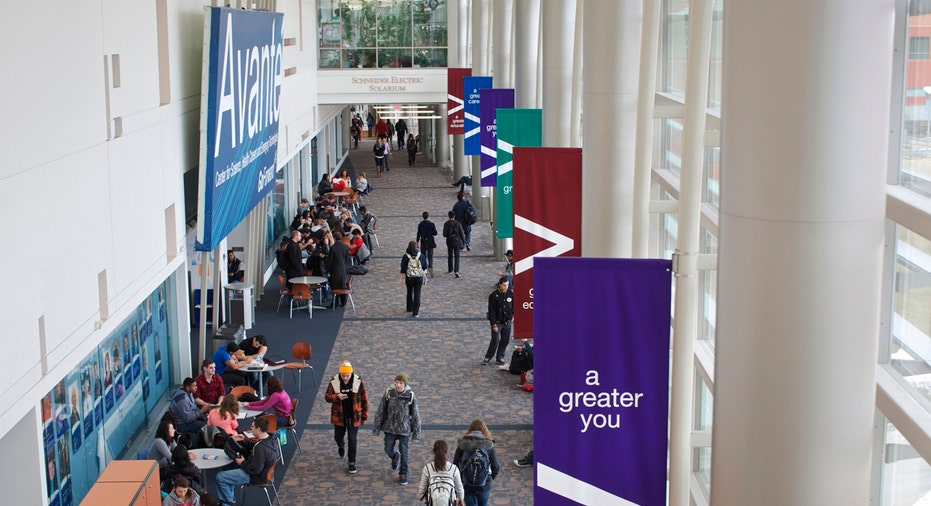College: Get a Good Job or We'll Pay Your Loans - The College That Guarantees Loan Payments Until a Graduate Earns Enough

The collective student loan debt in the US has topped $1.2 trillion, leaving many graduates in a deep financial hole. Combined with a jobs picture that is improving but still relatively weak, that financial hole can seem insurmountable.
One small college in Michigan has taken a unique step to prevent their graduates from falling into the student debt abyss. Adrian College, a small liberal arts institution in Adrian, Michigan, gained national attention with their partial student loan repayment guarantee program. Adrian College has an enrollment near 1,700 students. Attendance costs approximately $40,000 per year with combined tuition, room and board.
Starting with the incoming freshman class of 2014, graduates who make less than $20,000 per year will be reimbursed for their full monthly student loan payments. Graduates making between $20,000 and $37,000 will be reimbursed on a sliding scale. The reimbursements end when a student begins making more than $37,000 or they receive a total of $70,000 in reimbursements. There is no time limitation; the only cap is on total reimbursement. For those going straight on to higher degrees, the program kicks in after the student has completed their graduate school degree.
The Adrian College program also accommodates transfer students that have outstanding student loans and at least two years of college remaining to achieve their degree.
USA Today reported that 85% of Adrian students have student loan debt upon graduation, with an average debt of $17,000. The loan repayment program can go a long way toward relieving that burden for future students.
Adrian College President Jeffrey Docking said that the program was inspired by a similar guarantee at an even smaller institution. The nearby Christian school Spring Arbor University created their guarantee program starting with freshmen entering in the fall of 2013.
Both of the guarantee programs were developed with the assistance of the Loan Repayment Assistance Program (LRAP) Association, a private group that assists U.S. colleges and universities to help them maintain enrollment levels. The LRAP provides the backing for the repayment programs — in essence, a form of insurance policy — enabling smaller colleges and universities to gain an edge in recruiting and retaining students. The programs are gaining popularity among smaller religious-based universities, but Adrian College may be the highest profile institution to participate so far.
The LRAP does have some limitations and concerns. It is necessary to have a job, which does not help the graduate squeezed by a lack of jobs in their chosen field of study. There may be further limitations on the job qualifications. It is not clear whether the job has to be related to a chosen field, but LRAP programs in general require at least a thirty-hour workweek — in other words, taking a simple part-time low-paying job does not guarantee loan repayments.
Another question is whether the loan repayment would be considered taxable income, as if the student earned the money to repay the loan. Without some targeted legislation similar to the Mortgage Debt Relief Act for underwater homeowners, the loan payments are likely to be considered taxable income. Recipients may find an unpleasant surprise in a tax bill they did not expect.
Even with those caveats, the program seems to be working well for colleges. The LRAP Association notes that retention rates have improved at colleges with LRAP assistance, and that 68% of LRAP-covered students would not have enrolled without the program. Time will tell if the program works just as well for the students as it does for the colleges.
More from MoneyTips.com:Should Colleges Pay for Student Loan Defaults?Obama Announces “Student Aid Bill of Rights”Tuition-Free Colleges



















